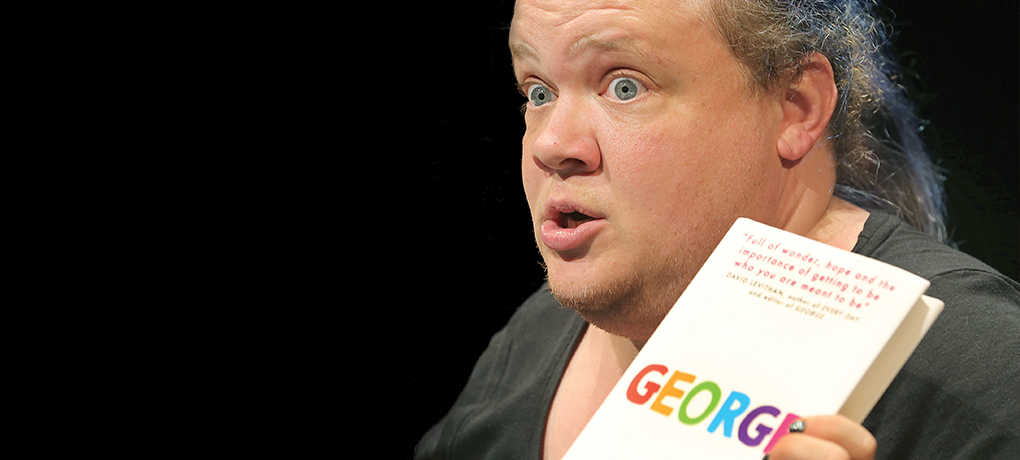By: Emily Belz – world.wng.org – March 15, 2018
Robin Prather, a retired children’s librarian in Oregon and a Christian, volunteers at a school library in the district where she used to work. A fellow librarian pointed out a title to her in an upcoming popular reading competition for third- through fifth-graders: George by Alex Gino.
The story centers on a boy who is convinced he is a girl, and discusses genitalia, taking hormones, sexual orientation, and sex change surgeries. “We are talking about 8- to 11-year-old elementary students,” Prather wrote in an email. “Some of these children don’t even know about the facts of life yet.”
The competition is called Battle of the Books, a reading event that grew out of a Chicago radio show in the 1940s and is in school districts and libraries all over the country now. Once a year school teams meet to battle in a game show format, answering trivia questions about books on the Battle of the Books list.
George is on Oregon’s recently released Battle of the Books list for the 2018-2019 school year.
In one part of the book, George recounts watching a television interview with a transgender woman where they discussed sex change surgery. “So George knew it could be done,” the book says. “A boy could become a girl. She [George] had since read on the Internet that you could take girl hormones that would change your body, and you could get a bunch of different surgeries if you wanted them and had the money. This was called transitioning. You could even start before you were eighteen with pills called androgen blockers that stopped the boy hormones already inside you from turning your body into a man’s.”
The book is not just “raising awareness” for gender dysphoria or endorsing transgenderism for children—it is publishing risky health data. Pediatric hormone blocking is a relatively new practice (first undertaken in the United States in 2007), and the FDA hasn’t approved it. Giving cross-sex hormones like estrogen to a boy is also not FDA-approved.
A recent journal publication from a Washington University pediatric endocrinologist and two Johns Hopkins Medical School psychiatrists called hormone therapy in children “a drastic and experimental measure.” They argued that doctors often promise that the effects of hormone blockers are fully reversible when there is little scientific evidence to confirm that. (Doctors across the spectrum agree that the vast majority of children diagnosed with gender dysphoria later identify with their biological sex.)
But books like George are gaining more acceptance, and publishers are putting out more of them. “The next frontier for authors writing about transgender people seems to be middle-grade literature, or books aimed at 8- to 12-year-olds,” asserted The New York Times in a 2015 piece.
A children’s book editor at Scholastic, and the editor of George, David Levithan, told Publisher’s Weekly that he had been seeing more transgender titles cross his desk and added, “Hopefully more trans writers will write them.” Levithan, himself a YA author, featured in his first book in 2003 “a homecoming queen who used to be a guy.” Scholastic didn’t return requests for comment.
As publishers publish, critics give accolades, which lead to awards—the award might be from an LGBT group, but it allows the book to be called “award-winning,” a description I heard several times in defense of George. In 2016, the American Library Association (ALA) presented Gino with the Children’s Stonewall Award, the first of that award ever given specifically for children’s literature. (There’s been an ALA award for LGBT young adult & children’s literature since 2010.)
Awards help titles onto reading lists like Battle of the Books.
To see the remainder of this article, click read more.
Source: Battle over books
 Listen Online
Listen Online Watch Online
Watch Online Find a Station in Your Area
Find a Station in Your Area







 Listen Now
Listen Now Watch Online
Watch Online
